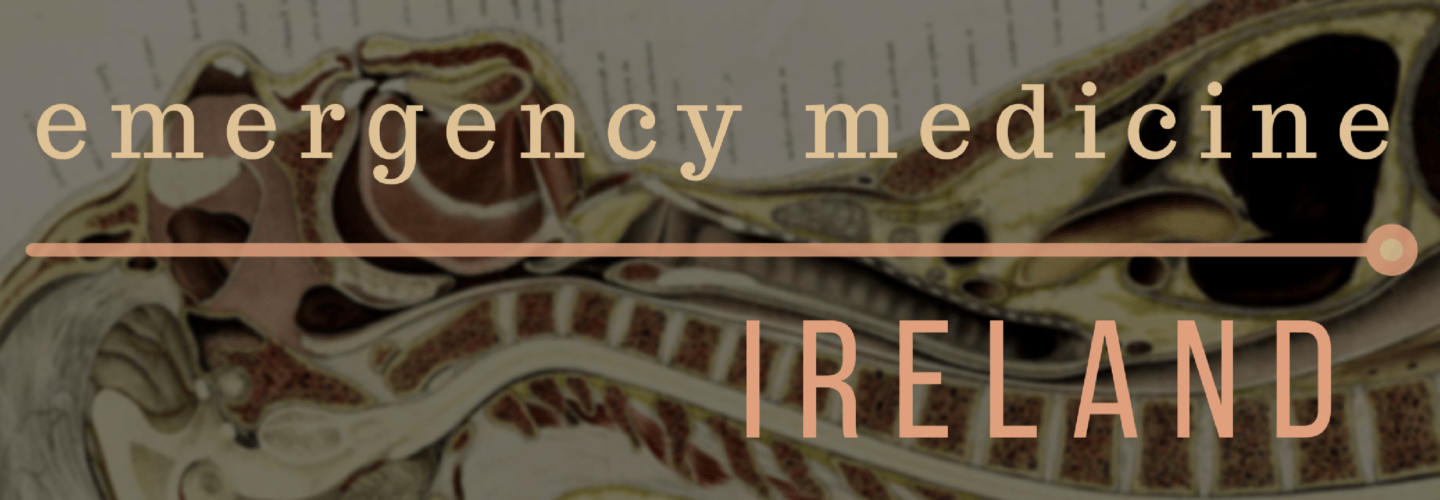I’m entering a few months prep for the UK and Ireland exit exam in Emergency Medicine: the FRCEM. I’ll be adding lots of little notes on pearls I’ve learned along the way. A lot of my revision is based around the Handbook of EM as a curriculum guide and review of contemporary, mainly UK guidelines. I also focus on the areas that I’m a bit sketchy on. With that in mind I hope they’re useful.
You can find more things on the FRCEM on this site here.
Some good FOAMed on this
What is a thyrotoxic crisis?
- thyroid hormones are T3 and T4
- when these are in dramatic excess for a variety of reasons then you get thyroid storm
- most T3 and T4 is bound to protein and inactive. T3 is the more active one.
- thyroid hormones regulate metabolism and also the expression and sensitivity of beta receptors making them equisitively sensitive to endogenous beta agonists. Hence why you get a sympathomimetic picture in someone with a precipitant that stimulates endogenous catecholamines
- presentation
- fever
- altered mental status
- sympathetic surge
- background of hyperthyroidism (mainly Grave’s)
- clinical diagnosis but if you have them high T3/4 and low/undetectable TSH. Also another cause of high calcium
[collapse]
How should we manage it?
- usual resus stuff
- control the sympathetic surge – propanolol or esmolol (as per OHEM)
- steroids (reduce conversion of T4 to T3 and also treat the commonly co existent adrenal insufficiency)
- Propylthiouracil (PTU) or Carbimazole (both block new production)
- don’t give aspirin as apparently this displaces thyroid hormone from it’s binding making it active.
[collapse]
What happens in severe hypothyroidism?
From LITFL and Rosen’s 8th
- female
- more often in winter
- usually long standing hypothyroidism
- hypothermic
- altered mental status – lethargy, confused, coma
- hypotension/bradycardia
- type II RF common
- myxoedmea facies (puffy eyes and nose and tongue)
- if you can get it a sky high TSH in the right context would be useful
[collapse]
How should we manage it?
- big doses of thyroid hormone
- in the young ones give the T3
- in the older folk give the T4
- steroids again – for the adrenal insufficiency
[collapse]
